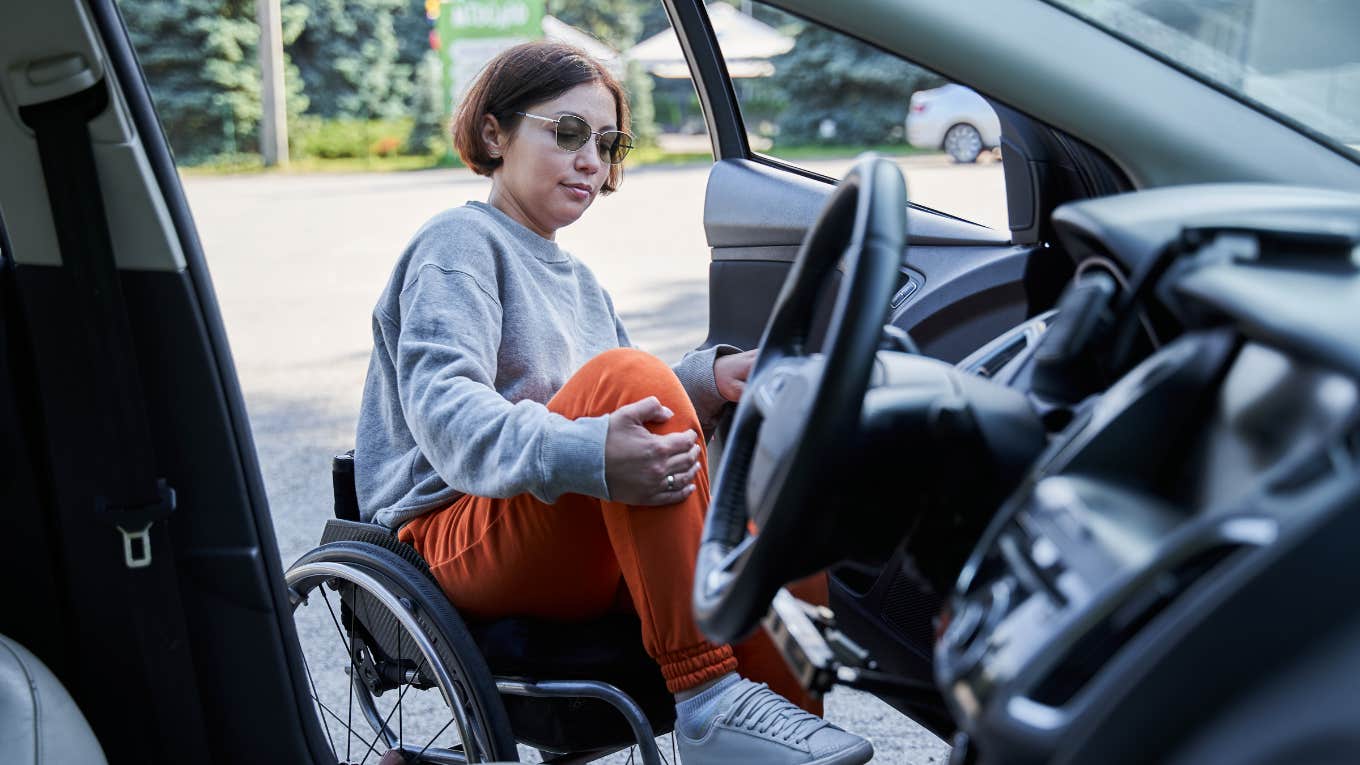Canadian content creator Allison Lang was confronted by an angry stranger after parking in a disabled spot and forced to prove she was disabled.
Ms Lang, who makes powerful videos about living with a disability, claimed she was tired of people “complimenting” her by implying she shouldn’t have a disability at her age.
She was told by a man who berated her for parking in a disabled parking spot that she was “too young to be disabled.”
“I can’t believe someone did this to me,” a disbelieving Lang said as he sat in his car moments after the incident.
She explained that she had parked in the handicapped area of Walmart and was about to hang up her pass when an unknown middle-aged man approached her parked car and knocked on her window.
“Through the glass he’s telling me: ‘Miss, you can’t park there. You can’t park in the handicapped spot with your granny pass,'” she continued.
But the pass didn’t belong to Lang’s grandmother, who silently opened the car door to reveal her prosthetic leg. “Um, excuse me, I only have one leg,” she told the man.
His response? “I didn’t know,” and that she was “too young to be disabled,” which doesn’t make sense because, as Lang points out, “not all disabilities are visible.”
Disability has no set age and can happen to anyone, regardless of age, background or appearance. Approaching someone and demanding that they prove they have a disability is not only disrespectful, but deeply hurtful.
According to data shared by Statista in 2021, nearly half of the disabled population in the United States is 75 years old or older, while about 11% are between the ages of 21 and 64, 7.6% are between the ages of 12 and 20, and 5.8% are between the ages of 5 and 15.
Telling a person with a disability that they “don’t look disabled” is not a compliment and can be very hurtful.
Suggesting that someone is “not old enough” or “too pretty” to be disabled reinforces already harmful stereotypes held by disabled people and further isolates and invalidates the experiences of disabled people.
This is a narrow-minded approach that does not take into account the diversity of people with disabilities.
“Please stop saying things like that to people with disabilities,” Lang said. “It makes it seem like disability is a bad thing.”
Lang noted that being told she’s “too beautiful to be disabled” always feels like a sarcastic compliment, as if the fact that she’s beautiful but disabled renders the compliment irrelevant. It also doesn’t make sense to say someone is “too young to be disabled” when, like Lang, some people are born with disabilities.
Related articles from YourTango:
“Let’s not make people with disabilities feel like they’re worthless because they have a disability,” Lang said. “You can be beautiful with a disability, you can be young with a disability, you can be an athlete with a disability. You can be anything with a disability.”
The disability community is one of the largest marginalized communities in the world and someone can become disabled at any point in their life. Disability does not have a single appearance and people with disabilities should not be pigeonholed into outdated ideas and stereotypes that are often imposed upon them. What may seem like a compliment is actually a microaggression that can be very hurtful.
Nia Tipton is a Chicago-based entertainment, news and lifestyle writer whose work explores contemporary issues and experiences.

